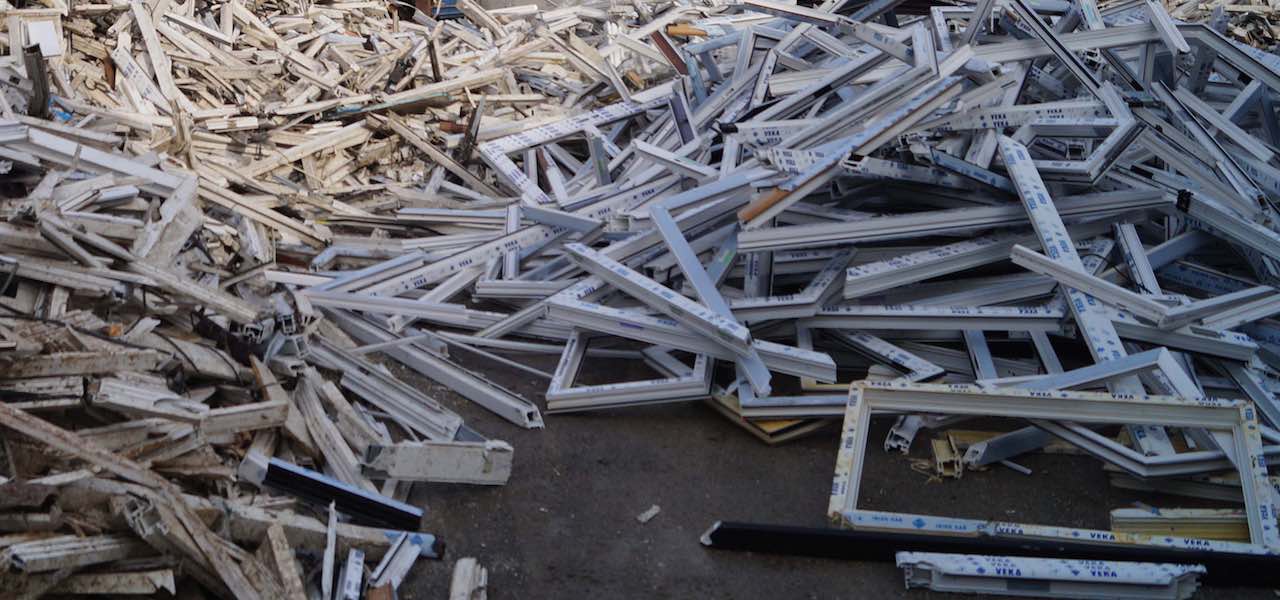The collection and recycling of waste PVC throughout Europe, including the UK, reached a new high of 639,648 tonnes in 2017, according to latest industry figures.
Recovinyl®, the PVC industry’s recycling scheme, was the largest contributor to this total and registered a total of 633,127 tonnes of recycled PVC waste in 2017. While this represented a 13% increase from 2016 with increased volumes recorded in France and Italy, recyclers reported a shortage of post-consumer window profiles for recycling in the UK.
Recovinyl is an initiative by the European PVC value-chain aimed at facilitating PVC waste collection and recycling. Created in 2003 as part of Vinyl 2010, the predecessor of VinylPlus®, its aim is to advance the sustainable development of the PVC industry by boosting the collection and recycling of waste.
Today, as part of the VinylPlus voluntary commitment to sustainable development of the European PVC industry, Recovinyl has a broader mission. Its activities extend to optimising the resource efficiency of the PVC industry by mediating between recyclers and converters to establish a trustworthy relationship and material flow.
Recovinyl’s target is to stimulate and certify the recycling of 800,000 tonnes of PVC waste by 2020 as one of the challenges set in the VinylPlus Voluntary Commitment. VinylPlus has also recently committed to recycle and certify the use of at least 900,000 tonnes of PVC per year into new products by 2025, securing PVC’s place at the heart of the Circular Economy.
Furthermore, VinylPlus has also committed to recycling a minimum of one million tonnes per year by 2030.
PVC is a strong, versatile and readily-recyclable material widely used in many modern building products; the most familiar in this sector being window frames, fascias and soffits. Since their introduction to this country around 40 years ago, PVC-U windows and doors have been installed in millions of homes throughout the UK.
Developments in design, materials and construction have greatly improved the aesthetics, thermal-efficiency and security of these popular products over recent decades. As homeowners have substituted their older and often single-glazed windows with modern versions, this growing ‘replacing the replacements’ market has resulted in corresponding growth in PVC recycling infrastructure.
Previously there was little or no recycling infrastructure in place to accept waste PVC-U frames, which were sent to landfill. Since 2003 when Recovinyl was created, and 2005 when it was established in the UK, more PVC waste is being recycled.
PVC can be recycled multiple times without any loss of performance and reused in many diverse new and long-life products from construction products such as windows to flooring and electrical components.
Richard McKinlay, Head of Circular Economy at Axion, Recovinyl’s Regional Representative for the UK, says:
“Recovinyl continues to deliver impressive sustainable achievements in recycling a valuable material that was once consigned to landfill. On-going investment in recycling infrastructure, strong commitment from the construction sector and growing demand from manufacturers for good recycled material are all key factors.”
“For fabricators and installers, recycling PVC makes ‘complete sense’” says Richard: “With a recycling network across the UK, it’s a convenient way to save you money on landfill disposal, it protects the environment and it’s the right thing to do.”
“Whether you are a fabricator or an installer, you could save money by recycling your waste PVC and Recovinyl can help you to do this. Look on the Recovinyl website to find your local recycler.”
VEKA Recycling was one of the first Recovinyl recyclers in the UK, opening their Kent facility in 2007, followed by further investment in a Wellingborough plant in 2018. Working with strategic collection partners throughout the UK, it offers a reliable recycling service for recycling PVC frames and post-production off-cuts.
Simon Scholes, Commercial Director at VEKA Recycling says that the ‘increasing professionalism’ of the PVC recycling industry is contributing to the material’s sustainability and its value as a waste resource that can be recycled.
“There is greater awareness in the window industry that PVC can be recycled and we welcome the fact that profile manufacturers recognise this and are responding by recycling more. Investment is making the PVC recycling industry more professional and is helping to bring sustainability to the industry as a whole.”
Commenting on the VinylPlus report of a shortage of post-consumer PVC frames for recycling in the UK, Simon continues: “It’s good that there are several large recyclers hungry for feedstock as we are all after a finite amount of waste PVC. A number of factors are influencing supply, such as Brexit uncertainty, the market flattening and companies working smarter and producing less waste. But there’s no simple answer.”
“While the market may have stabilised, demand for PVC recyclate continues to rise and the construction industry has much to gain economically and environmentally by sending waste PVC for recycling.”
Cumulatively, 4.2 million tonnes of PVC have been recycled through the VinylPlus framework across Europe since 2000. Building on this, Recovinyl’s strategy continues with consolidating and increasing the steady supply of PVC waste being recycled in Europe by creating demand – a ‘pull-market’ for recycled PVC material – from the converting industry.

